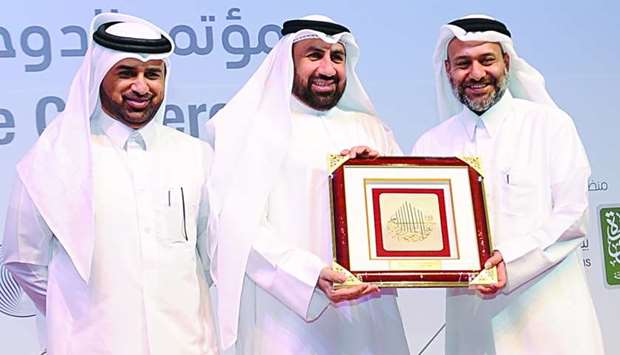Qatar needs to reform interbank liquidity management to study leakages from Islamic banks through interbank finance as part of a strategic roadmap for Shariah finance, according to a Qatar Financial Center (QFC) study.
Moreover, there is also a need to develop a regulatory framework and promote green bonds and sukuk to embolden Qatar’s regional leadership in sustainable investment, said Qatar Islamic Finance Report 2017, a joint initiative by the QFC, Thomson Reuters and Islamic Research and Training Institute.
In the banking sector, Qatar has led the world in ensuring in the authenticity of Shariah-compliant bank assets with Qatar Central Bank and the QFC Regulatory Authority requirements separating Islamic and conventional banks entirely, it said.
To ensure this segregation remains effective, the report said there should be a review to determine the feasibility in interbank markets for the central bank to limit flows from Islamic banks to conventional ones in their liquidity management operations using 'Murabaha'.
"The concern around leakage occurs when Islamic banks place funds through Murabaha interbank placements with conventional banks," it said.
Highlighting that the returns are permissible profit on a sale transaction, but the underlying source of the returns is interest-based loans; the report said "therefore, although these placements generate Shariah-compliant income, they also promote the greater use of interest-based finance, which is contrary to the broader objectives of Islamic banks."
On the need for improving Shariah governance, it said there is a need to establish greater consistency as it is a "critical" aspect for aspiring Islamic finance hubs, provide a centralised guidance on fit and proper criteria for Shariah scholars and promote Fintech development.
Fintech offers a way to reduce costs and make Islamic banks more competitive with their larger conventional counterparts, the report said, finding that the development of fintech, much of which is currently dedicated to serving the personal lending market, may see a slower pace because of personal lending limits and financing cost or interest rate caps in Qatar.
"It may be desirable, as part of the regulatory sandbox, to allow temporary exemptions and relaxed size limits for Fintech companies from these limits and caps," the report suggested.
Banks, which have greater access to stable funding, and non-bank financial institutions, which have more experience in underwriting smaller loans for small and medium enterprises (SMEs), can more effectively support SMEs by working together than in competition, it said.
"This collaboration should be built on a mutual interest in expanding financing to the SME market and the respective skills of each type of institution," it said, adding fintech would help this collaboration work by providing greater transparency between the institutions, lower costs and an increased ability to do ex-post Shariah audits to ensure that procedures approved by each institution’s Shariah board were followed.
On developing a responsible finance regulatory framework to attract regional funds, it said such a strategy includes development and promotion of green bonds and sukuk.
“In order to attract global players, we believe it is important to open up local Islamic finance offering to new global trends such as social and green financing,” QFC Authority chief executive Yousuf Mohamed al-Jaida said.


